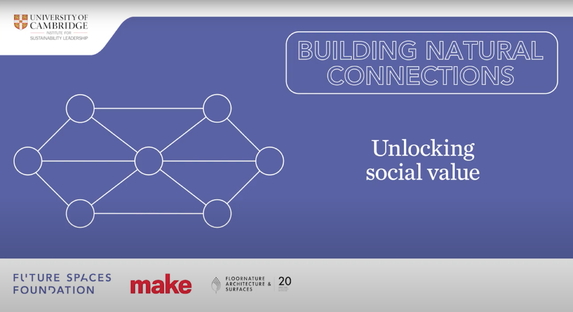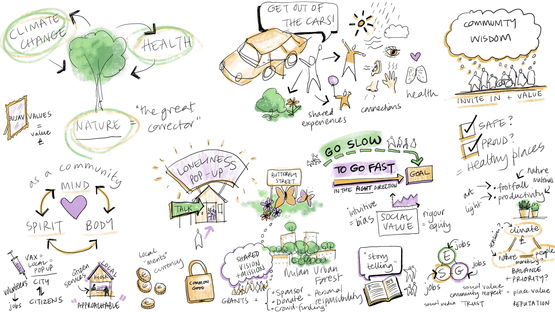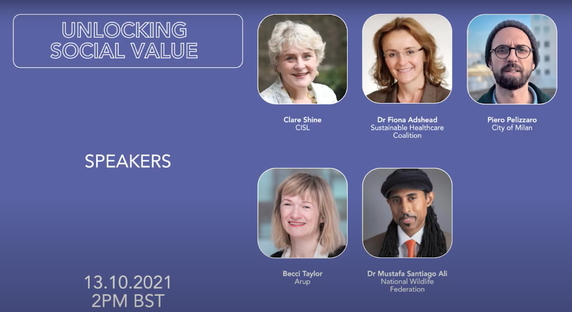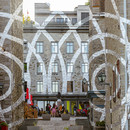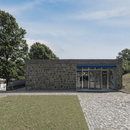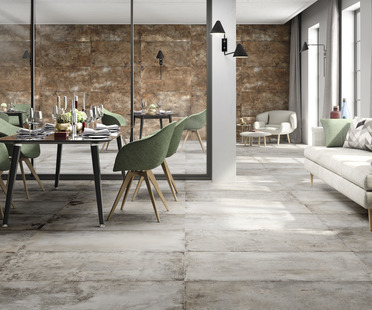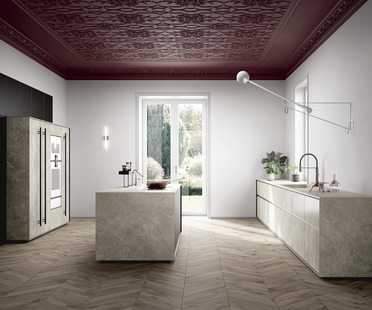22-10-2021
Building Natural Connections: Unlocking social value
Future Spaces Foundation with Cambridge Institute for Sustainability Leadership (CISL),
Frances Gannon,
- Blog
- Events
- Building Natural Connections: Unlocking social value
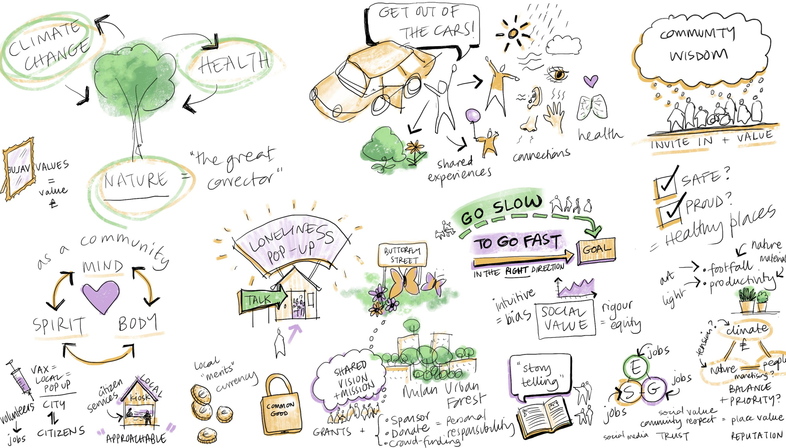 A few days before the start of COP26 in Glasgow, the webinar series entitled “Building Natural Connections” came to an end. It was organised by the Future Spaces Foundation in collaboration with the Cambridge Institute for Sustainability Leadership (CISL) - University of Cambridge, and followed by Floornature as the exclusive media partner of the event. In the three appointments of the series, experts from different disciplines discussed a wide range of socio-economic, demographic and technological factors capable of influencing the way we interact and operate, both as individuals and as a community and, above all, how we can work together in order to ensure a possible future for us as a species.
A few days before the start of COP26 in Glasgow, the webinar series entitled “Building Natural Connections” came to an end. It was organised by the Future Spaces Foundation in collaboration with the Cambridge Institute for Sustainability Leadership (CISL) - University of Cambridge, and followed by Floornature as the exclusive media partner of the event. In the three appointments of the series, experts from different disciplines discussed a wide range of socio-economic, demographic and technological factors capable of influencing the way we interact and operate, both as individuals and as a community and, above all, how we can work together in order to ensure a possible future for us as a species.The final webinar of the series, fittingly entitled “Unlocking Social Value”, saw the involvement of Ken Shuttleworth, Founder of Make Architects and of the Future Spaces Foundation, who moderated the webinar with participants Clare Shine, Director and CEO of the Cambridge Institute for Sustainability Leadership (CISL),
Becci Taylor, Director of Arup, Fiona Adshead, Chair of the Sustainable Healthcare Coalition, Dr Mustafa Santiago Ali, Vice President of Environmental Justice, Climate and Community Revitalisation for the National Wildlife Federation and Piero Pelizzaro, Chief Resilience Officer for the City of Milan. Together, they discussed the importance of the participation of all the parties involved at the beginning of the design process, drawing on community experience as a whole. All this, based on the assumption that two thirds of the global population will live in cities by 2050 when, however, the majority of urban spaces have not been created with human well-being in mind.
In fact, since the built environment is an extremely powerful tool in shaping society, it should be a pillar in the effort to deliver better social outcomes: it can help close socio-economic gaps, improve access to natural resources, support food security and prioritise health and well-being. Within this framework, the webinar participants shared their experiences also in view of how the urban public space has become a focal point of many discussions aggravated by the pandemic, which saw the majority of the world’s population confined first to our homes and then to our neighbourhoods.
From New York’s High Line park, to the urban regeneration of Milan, the involvement of citizens is fundamental for the success of the various initiatives in this area. As Piero Pelizzaro, Chief Resilience Officer for the City of Milan affirmed, the focus is on encouraging participation by the local population starting small, from the neighbourhood, where people are involved in looking after the local context. From the urban garden, to monitoring the city’s waterways, to the creation of flowering meadows to guarantee biodiversity: here, everyone finds their own dimension. By virtue of small interventions, we arrive at a more widespread network that embraces a large number of responsible citizens. Emphasising and above all unlocking the social value of these important gestures is indeed part of the professional practice of studios such as Arup. Here, as Becci Taylor explains, engineers are trained precisely to be able to assist communities in this fundamental task of safeguarding our vital environment.
Because one thing is certain – and it is undoubtedly the crucial message of the “Building Natural Connections” series: only if we act in synergy across the most varied disciplines, can we ensure a future for our planet.
Christiane Bürklein
Additional information:
https://www.futurespacesfoundation.org/our-work/building-natural-connections-webinar-series/
where the videos of the webinars are available
Photos: courtesy of Make Architects - Sketch by Frances Gannon










